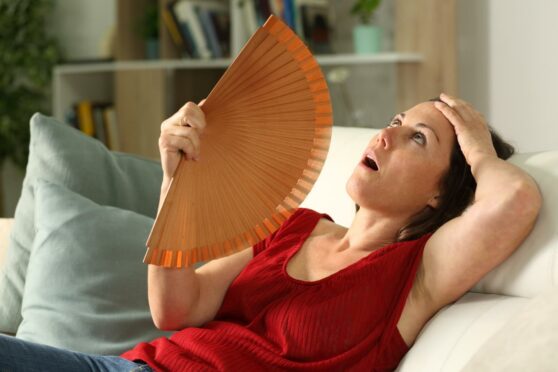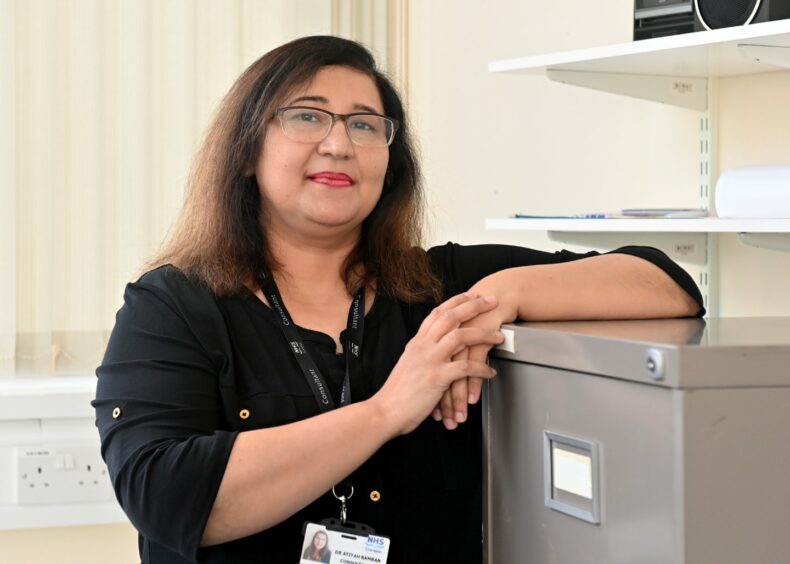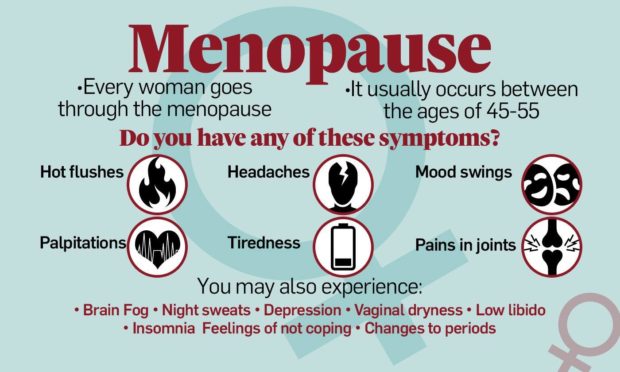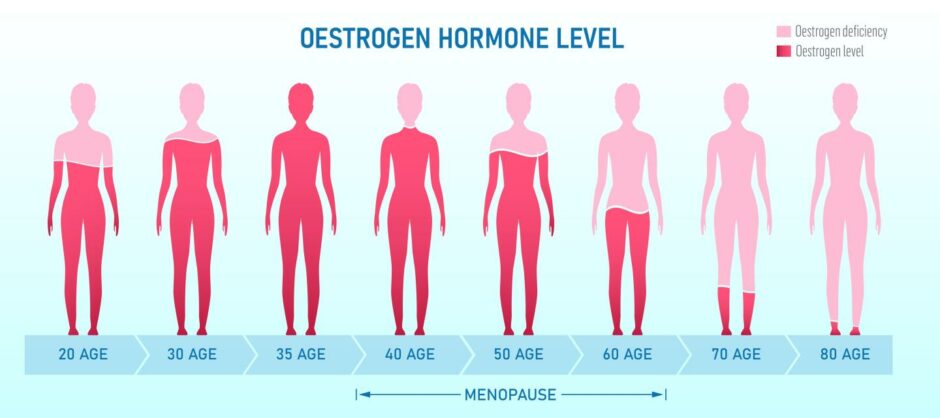Irritability, brain fog and night sweats… these are just a few of the symptoms of menopause. But did you know it can also cause problems with your bones?
Dr Atiyah Kamran, a consultant gynaecologist at Aberdeen Royal Infirmary, says it’s important for women to look after their bone health to avoid osteoporosis.
How can menopause affect bones?
When women reach the age of menopause their ovaries stop producing high levels of hormones in the body.
During the reproductive years, the hormone oestrogen helps to thicken the lining of the womb and stimulate the growth of egg follicles.
But it’s also important for helping other parts of the body, contributing to our cognitive health, the cardiovascular system and how we absorb calcium.
Oestrogen helps to protect our bones and, when levels of the hormone start declining in our 40s and 50s, it can lead to bone loss.
A woman can lose up to 20% of her bone density during the five years following menopause which can lead to osteoporosis.
Their bones become thinner causing them to fracture more easily.
What can we do to protect our bone health?
Today, on World Menopause Day, Dr Kamran has given some advice on how we can protect our bones.
In the first instance, women should talk to their GPs to find out if they are likely to be suffering from menopause.
Doctors can usually confirm it based on your symptoms but if you’re under the age of 45 a blood test can be taken to measure your hormone levels.
Dr Kamran says it could be the case you’ll benefit from hormone replacement therapy (HRT), which will help replace lost oestrogen.
“Not everyone needs HRT after menopause but if a woman is suffering and her quality of life is suffering and she wants some relief from it then the options are available,” Dr Kamran said.
“Every woman should have the right to ask.”
Is there anything else we can do?
Yes, there is. Dr Kamran says taking supplements and certain exercises can help.
“Weight bearing exercises are considered good so walking, running, skipping – anything that would produce some weight on your joints,” she says.
“It doesn’t have to be high intensity exercises.”
We can also take supplements such as Vitamin B6 and Vitamin D. Living a healthy lifestyle, reducing how much alcohol we drink and stopping smoking will also help.
What about natural supplements?
There’s also several natural remedies sold in health shops and on the internet such as red clover extract and black cohosh.
They’re said to be effective because they contact plant-based compounds that mimic the action of the oestrogen hormone.
But Dr Kamran warns we don’t know about the concentration of many of these products sold on the internet and they can react with other medications.
“People with no other medical products can use these products if they think that it helps them but if they use other medications it’s best to get advice from their doctor,” she said.
“There are lots of things available on the internet but we do not know if they improve the situation but they can cause harm if unregulated amounts are used.”
World Menopause Day is held every year to raise awareness of menopause and the support options available.
If you’re looking for more information about menopause and the help you can receive visit the Menopause Matters website or The British Menopause Society.
More health news…
Here’s how you can be happy without chasing big achievements in your life
Petition launched to get new hospital in Shetland
Warning over infant virus doctors deem more concerning than Covid
Man who hit ‘rock bottom’ turns life around with boxing



